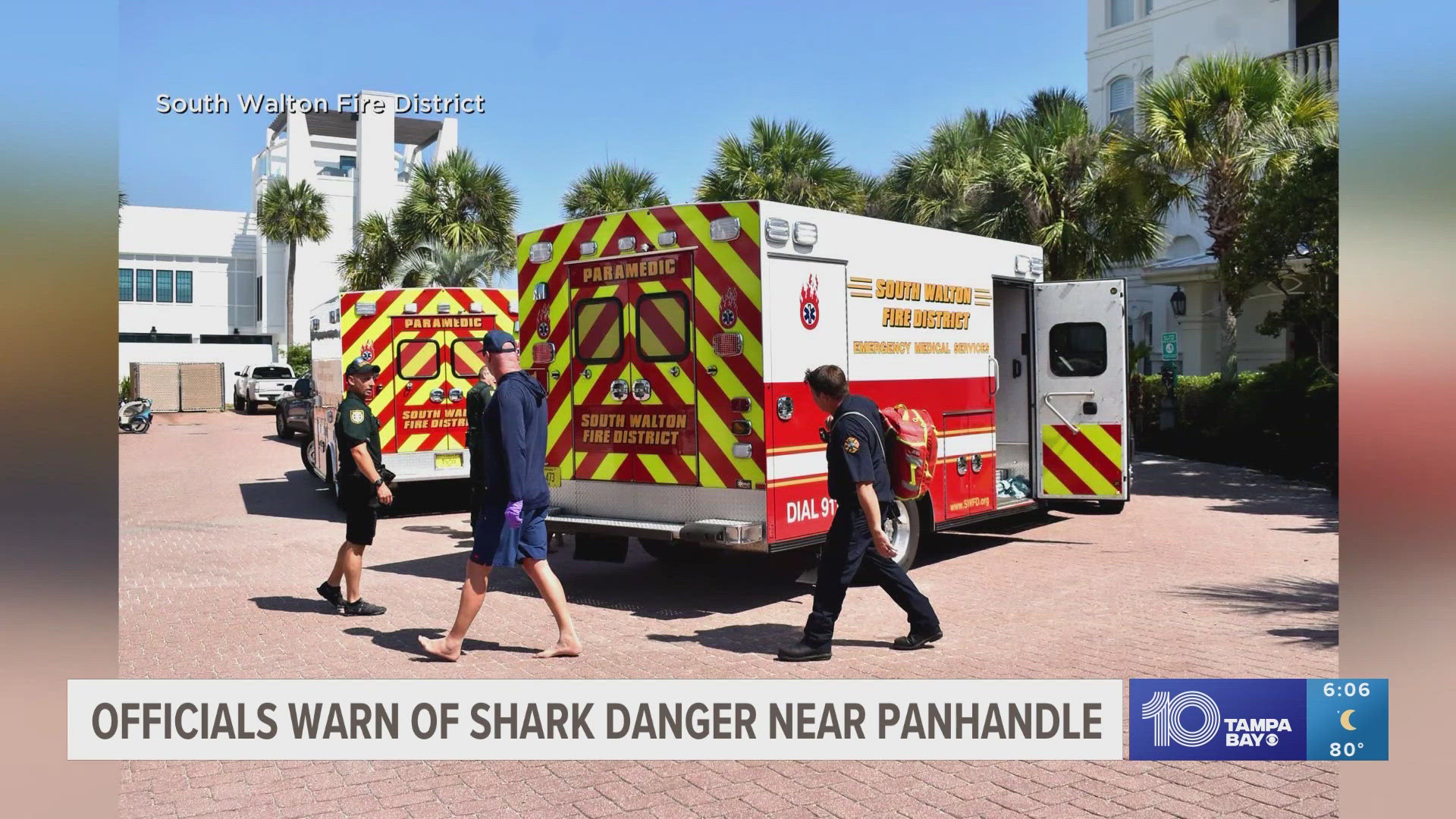WALTON COUNTY, Fla. — Two shark attacks reported Friday resulted in injuries, some life-altering, to three people in the Florida Panhandle.
The attacks were only 4 miles apart in Walton County at Watersound Beach and Seacrest Beach. A 45-year-old woman, identified as wife and mother Elisabeth Foley, lost her left hand and suffered severe injuries to her midsection after an attack at the first beach.
Lulu Gribbin, a 15-year-old girl, had her left hand and right leg amputated. Gribbin's friend, McCray Faust, suffered minor injuries to her foot.
In a post on Caringbridge.org, Lulu's mother, Ann Blair Gribbin, said the attack happened during her first mother-daughter beach trip with Lulu. She recounted the scene as “something out of a movie” and said her daughter was on a sand bar in waist-high water looking for sand dollars when she was bitten.
A man grabbed her uninjured arm, pulled Lulu out and was quickly surrounded by beachgoers, including two doctors and a nurse. The teenager, who is from Mountain Brook, Alabama, was then airlifted to Ascension Sacred Heart Pensacola.
“At this point we will have multiple surgeries in the days to come and our lives will be forever changed,” Ann Blair Gribbin wrote. “Lulu is strong, beautiful, brave and so many more things I can’t count. God has a plan for her, and we will be there to support her every way we can.”
Foley’s husband, Ryan Foley, wrote a statement to their church, Winns Baptist Church in Glen Allen, Virginia, saying his wife is “hanging in there and has a super positive attitude.”
“Thank the Lord she is so tough and in great physical condition. Her faith is what’s getting her through, coupled with countless other blessings,” Foley wrote.
Here’s everything you need to know and how to stay safe regardless of where you are:
Florida beaches after reported shark attacks
The beaches are open with flags warning of high hazards. They were closed on Friday.
The South Walton Fire District said lifeguards are flying yellow and purple flags, according to an X post. Yellow flags show medium hazard and purple flags indicate dangerous marine life. These colored flags were also flown on Sunday.
“Please do not underestimate the open water and any of the marine life present,” the fire district said in a post.
“We are guests in the Gulf," Walton County Sheriff’s Office spokeswoman Corey Dobridnia said in a statement. "We all must accept some amount of risk when entering the water. That DOES NOT take away from these two ladies whose lives are forever changed.”
Over the weekend, the beach marine unit from the Walton County Sheriff’s Office was monitoring the beaches using boats and trucks on the sand. When the attacks initially happened, the beach flags were changed to double red, which indicated the water was closed for swimming.
How to stay safe
Shark attacks are rare, according to experts, but there are still things you can do to reduce your risk. Here are some tips from the Florida Fish and Wildlife Conservation Commission:
- Always stay in groups
- Don’t wander too far from the shore
- Avoid being in the water during darkness or twilight hours when sharks are most active
- Don’t enter the water if you’re bleeding
- Don't wear shiny jewelry because light reflects off it and it resembles the sheen of fish scales
- Avoid waters with known discharges or sewage and waters used for fishing (diving seabirds are good indicators of this activity)
- Use caution when waters are murky
- Uneven tans and bright-colored clothing might draw a shark’s attention
- Don’t excessively splash
- Don’t allow pets in the water
- Be careful when you’re between sandbars or near steep-offs
- Swim in areas tended by lifeguards
- Don’t go in the water if sharks are known to be present
- Don’t harass a shark
There were 69 unprovoked bites last year worldwide, and 10 of those were fatal, according to the University of Florida’s International Shark Attack File. That was higher than the recent average of six deaths per year.
The Associated Press contributed to this report.

